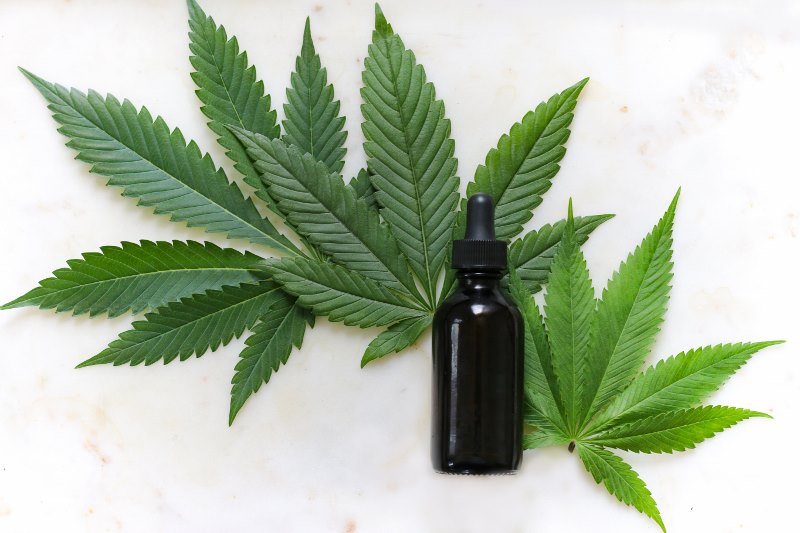Cannabis has been used for recreational purposes for a very long time. It is first referenced by Herodotus, in his book Histories, around 2,500 years ago, where it formed the interesting part of a steam bath. Cannabis has also long been known to have medicinal uses. There is simply no denying that this is the case. But, can cannabis, or some part of it, cure cancer?
Cannabis is a complex plant. It has over 100 components, parts or chemicals compounds, which are known as cannabidoids. The most well known of these cannabidoids are Tetrahydrocannabinol (THC) and Cannabidiol (CBD). Indeed, it is these two cannabidoids that I will be focusing on, primarily because they’re the most well studied and researched.
It is the THC component of cannabis that causes the majority of the problems, in terms of cannabis being considered a narcotic. In 1971, THC was listed by the United Nations (UN) Convention on Psychotropic Substances, meaning it was considered mind altering. In 1991, following recommendations from the World Heath Organisation (WHO) THC was reclassified as a Schedule II substance; of less concern. The current WHO recommendations are to further reclassify THC to a schedule III substance. This has yet to be taken on board.
Further to this, cannabis and THC are also included in the Single Convention on Narcotic Drugs. This is a treaty to prohibit the production and supply of narcotics. In this convention, largely at the insistence of the United States, cannabis is included in the same category as Opium. It almost goes without saying, that this is an utterly idiotic situation.
Basically, it’s a mess. Cannabis is considered by many scientists and Governments to be a hallucinogen. Many people, of course, dispute this claim.

Photo by Ehimetalor Unuabona on Unsplash
As of yet, I have no first hand experience to bring to the debate; I’m not a smoker, so I have never really found cannabis tempting. I have, however, spoken to those who have some… personal experience… with the drug. And they’ve talked about seeing ‘trails’ when they’re good and stoned. These trails, as far as I can make out, are a form of visual hallucination. As such, it seems likely to me that cannabis can have a hallucinogenic element.
But, like I say; I’m not an expert.
Furthermore, I simply don’t care…
If cannabis can cure cancer, I don’t care if it’s mildly hallucinogenic. I just want to be cured of my cancer.
In this matter, I’m with the late, great Terry Pratchett, who once said, “Personally, I’d eat the arse out of a dead mole if it offered a fighting chance.“
Terry was taken, far too young, by Alzheimer’s Disease. Do yourself a favour and read some of his books. As you can see, he had a real way with words. I still miss him.
But, I digress; back to cannabis and a possible cure for cancer…
So, if THC is considered to be the recreational aspect of cannabis, CBD is where you find the medicinal benefits. CBD does not have the same psychoactivity as THC, meaning that it isn’t a hallucinogen. Like virtually everything else, taking CBD can have side effects, particularly with long term use. These side effects can include:
- Drowsiness
- Lack of appetite
- Diarrhea
- Fatigue
- Malaise
- Weakness
- Sleeping problems

Photo by Hutomo Abrianto on Unsplash
You can see from the side effects, that there is no mention of anything like a ‘high’. CBD use also does not lead to dependency issues. As such, CBD is neither a narcotic nor addictive…
Consequently, in a lot of countries CBD is legal (typically, providing the THC content is below 0.3%). CBD is also not listed in the UN Convention on Psychotropic Substances, and the current WHO guidelines are that it remain unlisted. Confusingly, then, in the US, CBD is a Schedule I Controlled Substance, along side things like Heroin, Ecstasy and Cocaine…!
Schedule I is used for drugs that fulfill the following criteria:
- The drug or other substance has a high potential for abuse.
- The drug or other substance has no currently accepted medical use in treatment in the United States.
- There is a lack of accepted safety for use of the drug or other substance under medical supervision.
That CBD does not fulfill these criteria is so staggeringly obvious, I can’t believe I actually having to type this. Which, naturally, leads to the question, “Who benefits from CBD being on the schedule?”. And the most likely answer is ‘Big Pharma‘. Maybe there’s actually a grain of truth in the whole Big Pharma conspiracy theory, after all.
But please note; a single grain, does not a loaf of bread make.
Right, where was I?
Ah, yes; CBD oil.
So, we can generalise that, in terms of cannabis: THC is bad, and; CBD is good. As a result of this, CBD has been extracted from cannabis for use as an oil. CBD should not be confused with any of the following:
- Cannabis Oil
- Hash Oil
- Honey Oil
These are all oils from the whole of the plant and are likely to contain far more than just CBD.
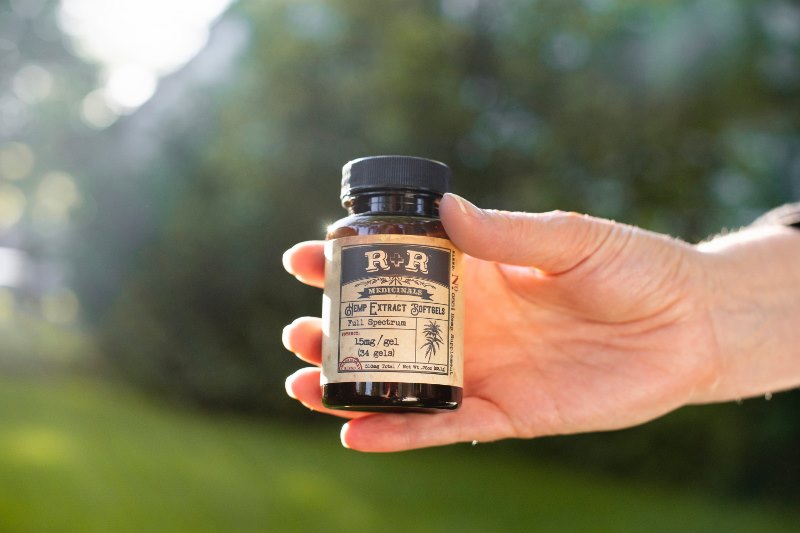
Photo by R+R Medicinals on Unsplash
Nor should CBD oil be confused with Hemp Oil. The latter is made from the Hemp plant. And, I can’t emphasise this enough; hemp, while looking very much like cannabis, is not the same thing.
Hemp is a remarkably nutritious plant and should be used for so many things. But it can’t be, because it looks like cannabis… You could smoke a field of hemp and not get high: it’s not that same thing!
But, once again, I digress…
So, if CBD oil has medicinal properties, what are they? Can the CBD component of cannabis really cure cancer?
Well, oddly enough, what with all the countries that have had the use of cannabis banned for so long, there isn’t a huge amount of research into the medicinal benefits of cannabis. This is what you’d expect if you ban the research of the medical benefits of cannabis, although some people still argue that the lack of research is reason not to do any research… Pffft! Some people!
In the preliminary research that has been done, evidence for the following health benefits of Medical Cannabis have been identified:
- Reduction of nausea and vomiting during chemotherapy
- Improvement in the appetite of people with HIV/AIDS
- Reduction in chronic pain and muscle spasms
- Treatment for severe forms of epilepsy
And, while cannabis is mentioned in relation to cancer, in terms of chemotherapy, there is no mention of a cure.
The absence of evidence for cannabis being a cure for cancer is certainly the common thread in the relevant pages of the cancer charities, and medical sites:
The issue here isn’t that cannabis and cannabidoids haven’t been shown to kill cancer cells in test tubes (in vitro). They have. But, remember, that in vitro tests just involve introducing cancer cells to substances and seeing if the cells die. If you subject cancer cells to Vodka, lemon juice or vinegar, in vitro, the cells die.
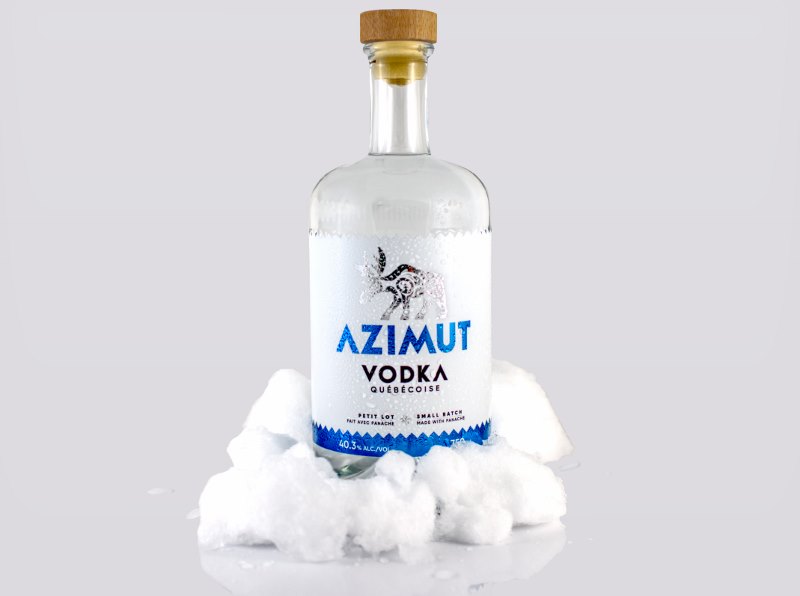
Photo by Michael Veronneau on Unsplash
The headline, “CBD Kills Cancer Cells in a Test Tube”, is no news at all.
Instead, this is typically reported: “CBD Potential New Cancer Cure!”
The same, to a lesser extent, is true of tests on lab animals (in vivo). While positive in vivo tests are far more promising, they are only an indicator of what is possible in humans. You wouldn’t believe the concentrations of compounds they give to a lab animal… Giving a lab rat a fatal dose of a cannabidoid, and then dissecting it to see that the tumour has shrunk, is proof that said cannabidoid can debulk tumours. But it’s hardly a working cure!
Until there is a consensus of evidence from clinical trials (which are actually done on humans), then there is no evidence that cannabis can cure cancer.
Funnily enough, there is one clinical trial…
Back in 2006, a pilot clinical study was published that reported that cannabis could reduce the size of tumours in humans.
Hooray!
The proof that we needed, right? Surely this means that cannabis can cure cancer?!
Well, let me give you a bit more information, and see what you think:
- The number of patients in the study was 9
- The patients all had recurrent glioblastoma multiforme, a particularly nasty brain tumour
- The patients had a THC solution applied directly to the tumour (by way of brain surgery)
- The THC was directly applied to the tumours for between 10 and 64 days
- Generally speaking, this led to shrinkage in the tumours
- Two of the patients survived for a year
- Overall, the treatment, “showed a slight impact on overall length of survival”
And that is it!
So far, that is as close as research has come to using cannabis to cure cancer.
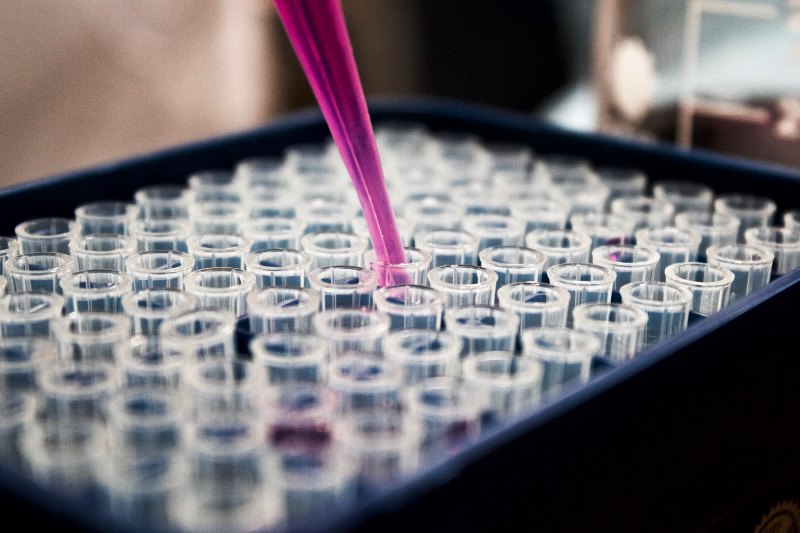
Photo by Louis Reed on Unsplash
This isn’t to say that future research won’t clearly demonstrate that cannabis is a cure for cancer. I seriously hope that this is the case. But we’re nowhere close to that at the moment.
In fact, looking at the glioblastoma study, while the results are interesting, we don’t know if CBD would have had a better outcome. Or a synthetic version of THC. Or Vodka, lemon juice or vinegar…!
Which is why so much further study is needed before people start getting excited about this stuff.
And the required wait to get excited simply isn’t happening. Leafly, the largest cannabis website in the world, referred to the clinical research I described above and reported it as:
Some research has even shown that some cannabis compounds may slow cancer growth and shrink tumors.
https://www.leafly.com/news/health/how-to-use-medical-marijuana-for-cancer
I’ve left the links intact. The ‘slow cancer growth’ link, from Leafly, takes you to the same research paper as my ‘pilot clinical study’ link, above. The tone of the Leafly post is, however, noticeably different. The misreporting of cannabis related cures has actually got so bad, it’s causing concern in medical and scientific circles.
Don’t get me wrong, I’m not accusing Leafly of anything here. In fact, having taken a look at some other posts on their site, I think that Leafly is balanced and worth a read.
Other sites, however are not. And no, I’m not going to link to them. Instead, I will link to a research paper entitled, False News of a Cannabis Cancer Cure. This discusses the misinformation (lies) being spread around social media regarding a cannabis based cure for cancer. The result of these lies is the growing interest of using cannabis as a cancer cure.
But, the one thing that you can be sure of, is smoking cannabis is never going to be the cure for cancer. Sad, but true!
CBD oil might have something going for it, in terms of a cancer cure. Maybe even some of the other cannadidiods. But, given that the one positive clinical trial, so far, involved brain surgery to directly apply the oil to the tumour, you already know that smoking weed isn’t the answer.
Any more than drinking Vodka, lemon juice or vinegar is the answer. And we already know that these, too, destroy cancer cells in a test tube.
The other thing to take into account is that there is no noticeable difference in the effectiveness of synthetic cannabidoids, compared to their natural, cannabis-derived originals. And you can’t smoke the synthetic versions at all…!
One final thing to consider is that smoking large amounts of cannabis, particularly when it’s mixed with tobacco, can actually lead to cancer. Things like lung, throat and prostrate cancer, by all accounts. That’s not to say that smoking cannabis is as bad as smoking tobacco, it isn’t. But please understand that smoking cannabis can cause cancer, regardless of whether you are doing so in a misguided attempt to cure cancer.
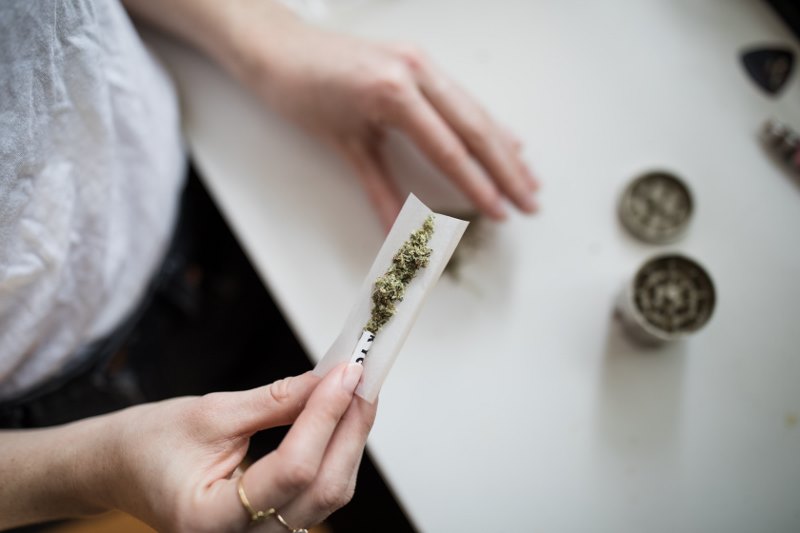
Photo by Thought Catalog on Unsplash
Which isn’t to say that cannabis, in particular CBD oil, doesn’t have some medicinal benefits. And, again, I understand all the, ‘more research needs to be done’ side of things. But some research has been done.
And I’m more than a little interested…!
It seems that cannabis helps with both pain and the nausea of chemotherapy. As someone who is on palliative care and who struggles with the side effects of chemotherapy, I will be investigating further.
If my cancer relapses again and I end up back on chemotherapy, be sure that I’ll be trying to cure the nausea with CBD oil. Or cannabis, if it comes to it.
And if the chemotherapy stops working, and pain levels increase, I’ll be doing and taking whatever I need to, to make this time as bearable as possible. And anyone who tells me that I don’t have the right to do so, better have a damn good explanation as to why!
So, no; cannabis and cannabidoids like THC and CBD cannot cure cancer.
In all honesty, I don’t expect this to change, no matter how much research is done. But I can hope…
But what cannabis can do, is reduce the pain and suffering that cancer brings on. And that’s good enough for me.
